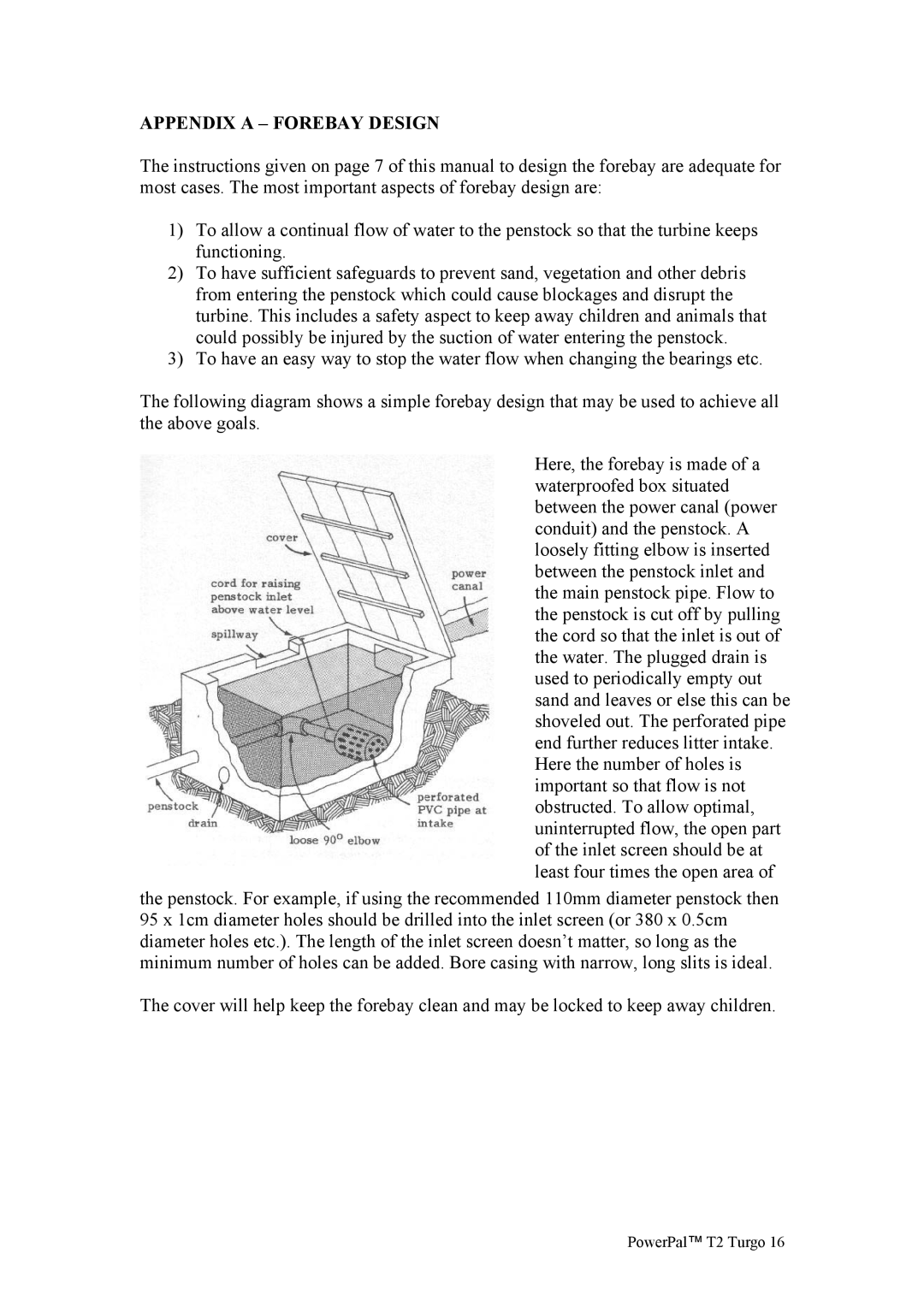
APPENDIX A – FOREBAY DESIGN
The instructions given on page 7 of this manual to design the forebay are adequate for most cases. The most important aspects of forebay design are:
1)To allow a continual flow of water to the penstock so that the turbine keeps functioning.
2)To have sufficient safeguards to prevent sand, vegetation and other debris from entering the penstock which could cause blockages and disrupt the turbine. This includes a safety aspect to keep away children and animals that could possibly be injured by the suction of water entering the penstock.
3)To have an easy way to stop the water flow when changing the bearings etc.
The following diagram shows a simple forebay design that may be used to achieve all the above goals.
Here, the forebay is made of a waterproofed box situated between the power canal (power conduit) and the penstock. A loosely fitting elbow is inserted between the penstock inlet and the main penstock pipe. Flow to the penstock is cut off by pulling the cord so that the inlet is out of the water. The plugged drain is used to periodically empty out sand and leaves or else this can be shoveled out. The perforated pipe end further reduces litter intake. Here the number of holes is important so that flow is not obstructed. To allow optimal, uninterrupted flow, the open part of the inlet screen should be at least four times the open area of
the penstock. For example, if using the recommended 110mm diameter penstock then 95 x 1cm diameter holes should be drilled into the inlet screen (or 380 x 0.5cm diameter holes etc.). The length of the inlet screen doesn’t matter, so long as the minimum number of holes can be added. Bore casing with narrow, long slits is ideal.
The cover will help keep the forebay clean and may be locked to keep away children.
